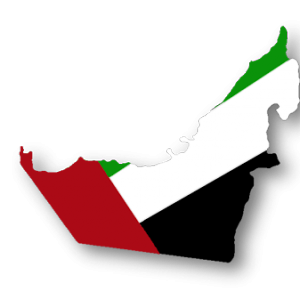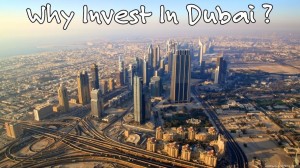In this blog post, Faraz Salat, who has just completed his internship in the Dubai office of an international law firm where he researched on the incorporation of enterprises in the Middle East and European countries, writes about the investment process in Dubai which is largely applicable in the other Emirates of UAE.
The UAE could be attractive for investors for a variety of reasons. UAE attracts good capital flow from the Gulf region as it has the most liberal trade regimes in the region. Having a diversified economy focused on a variety of industries from logistics, banking, tourism, real estate and manufacturing with a well-established infrastructure, a reliable banking system and a stable political environment give businesses an edge over other countries. With over 150 nationalities, expatriates observe their own culture and the country provides a safe and secure environment that boats a crime rate lowest in the world. UAE’s culture stems from Islamic traditions. Virtues of courtesy and hospitality are appreciated, and they reflect the warmth and friendliness of the local people. The society projects a significant tolerance towards varied lifestyles and by any stretch of the imagination, the UAE is a liberal society. Expatriates have the liberty to profess and practice their religion with dress code being liberal. Women are safe, and they move liberally through the city un-escorted, enjoying the freedom to be in a safe society. With all its rapid development, the UAE is closely linked to its heritage.
Cafeteria, grocery shops, retail outlets, gymnasium and many other trading and services businesses have now become commonplace due to large number of young salaried expatriates. Restaurants are open 24*7 with customers frequenting late in the night. The weekend in the areas of Bur Dubai remains happening and exciting throughout and the shopaholics haven that Meena Bazaar, Deira, etc. only add to the razzmatazz of Dubai. Businesses with investors from India, Pakistan, and the subcontinent have been dominating a sizable geography of Dubai dedicated towards shopping, entertainment, and food. With so many expatriates having a high disposable salary, a good standard of living, venturing into the above small yet profitable business must be considered for those looking for lucrative returns. Young expatriates who are bachelors rely on these restaurants which are popular by their geographical indication than their names; restaurants with their central themes on Punjabi, Bengali, Malabar, Pathani, Pakistani, Afghani, Lebanese, and et al have an exciting share in the diversified market. While having a samosa and chai in the morning, a friend once quipped that an investor can become rich in Dubai even by selling chai.
Basic requirement for all business activities in Dubai
The basic requirement for all business activities in Dubai are one of the three licenses, namely;
- Commercial licenses for trading activity;
- Professional licenses for few professions, services, craftsmen and artisans;
- Industrial licenses for industrial or manufacturing activity
Licenses are issued by Dubai Economic Department (DED) and are subject to external approvals, which vary from the activity of the business. A restaurant or café, however small, will be inspected by an external authority such as the Dubai Municipality. Likewise, a gym may need external inspection and/or approval from Youth and Sports Welfare Authority before a license is issued. These businesses are governed by the New UAE Commercial Companies Law, Federal Law No. 2 of 2015; and the authority is the Department of Economic Development. There is no capital requirement and the above businesses can be formed as an LLC without a bank deposit certificate. You will need a local sponsor, who is required to be a UAE national and will own 51% equity share in your business. However, the profits will be totally yours and you may need to appropriate a fixed annual fee towards the sponsor which could start from AED 10,000 and vary subject to your business.
Guide for any business setup in Dubai
The below five steps are an easy guide for any business setup in Dubai mainland;
- Find a local partner “sponsor”
- Get the name and activity approval from DED
- Find a business location and contract a tenancy agreement
- Draft an MOA with the sponsor
- Submit the MOA to DED
The tenancy agreement will need to be attested by the Dubai Land Department, and subsequently an Ejari certificate will be given, which will be required along with the MOA at DED office. The below list enumerates the requirements of an LLC.
| Minumum number of shareholders | The minimum number of shareholder required is two and maximum is fifty. |
| Requirement of shareholder who is a citizen | A UAE national is required as a sponsor with 51% equity share in the business. |
| Minimum number of directors | The minimum number of directors required is one and maximum is five. |
| Requirement of resident director or manager or company secretary | The expatriate may act as the company manager and run its day-to-day affairs. |
| Auditing requirements | No audit requirement in Dubai Mainland. |
| Company registration fee | Approximately AED 3000 as Ministry of Economy fees. |
| Company license fee | Approximate License fees: Commercial License Fees: AED 700 Industrial License Fees: AED 1100 Professional License Fees: AED 600 |
| Tax liability | No corporate, personal or capital gains tax |
| Approximate time period for company incorporation | 2-5 weeks |
Benefits for establishing a company in Dubai
Besides mainland, investors can start a business in a Free Zone. The key benefits of establishing a company here are;
- 100% ownership by expatriates
- No restrictions on currency
- All capital and profits may be repatriated
- No corporate, personal or capital gains tax
- Efficient infrastructure & communications
- Labor readily available
Dubai has over 30 free zones, and each has its specific advantages and business suitability. Companies in Free Zones can either be set up as single shareholder company such as Free Zone Enterprise or multiple shareholders such as Free Zone LLC. Business licenses that are issued here are;
- Trade License
- Industrial License
- Service License
- National Service License
(Fees may vary from one zone to another)
The share capital requirements in Free Zones will vary on the purpose of the company, and it can be from AED 50,000 (approximately USD $13,600) to AED 300,000 (approximately USD $82,000) for majority of the Free Zones. A trade license can be given to perform more than one activity or various activities. An exhaustive list of activities is available with the free zone authority, and at the licensing stage, the investor can choose the activities for his business. One may even opt for general trading license, which is subject to restrictions on certain activities. Depending on the activity of the business, the authority of the relevant zones will also provide business space for offices, warehouse, showroom or any customized requirements.
All business activities from the very small to medium and to the very large are regulated. Perhaps, you may not find a pavement stall or roadside shopping with street food, mobile accessories shopping or any rampant cluster of frenzy trade like the Mohd. Ali road during the midnight of Ramadan, the Fashion Street and the Linking Road in Bombay, or anything closer to even the elite pavement of Colaba Causeway or the Khan Market in Delhi. Every activity, even the vending of tea is regulated and needs a license by due process of law. The authorities are welcoming and will go out of their way to provide relevant details on investment. Lastly, when in Rome, do as the Romans do.
 Serato DJ Crack 2025Serato DJ PRO Crack
Serato DJ Crack 2025Serato DJ PRO Crack













 Allow notifications
Allow notifications


